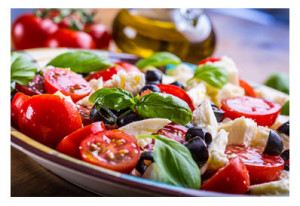Some say women are chameleons, especially if they have a romantic “target” in mind. So where is the line between being flexible, adaptable, open to change… versus inauthentic?
 Some say we all tell our spouses, significant others and friends whatever they want to hear — to quiet a storm that is brewing, to get something we want, or simply because it’s expedient.
Some say we all tell our spouses, significant others and friends whatever they want to hear — to quiet a storm that is brewing, to get something we want, or simply because it’s expedient.
Is there anything wrong with that? Is “authenticity” always desirable?
Some of us are more apt to slip on a second skin as easily as a kid glove, perhaps when visiting another country, or finding ourselves in dramatically different circumstances. We adjust, we consider new options, we embrace change as we all must, whether temporary or permanent.
Most of Us Claim “Change Is Good”
We’re told that it’s important to be flexible in life, to be adaptable to new situations, that “change is good.”
I’ve been thinking about change, ways in which I’ve changed who I am (or not), ways in which I haven’t changed (and should), and my assumption that others can change if they wish to… though they may not.
And I do wonder — just wonder — if women are in fact more malleable than men, or if that’s pure mythology. But if it is so, then why? Is it a matter of cultural conditioning? Temperament? Survival?
Might this help us in our jobs? Our search for jobs? Our willingness to “take what we can get” and make the most of it — as a matter of survival? Is this necessarily good in the long-run? (It angers me to even say that we’re willing to take what we can get, and I’m not convinced it serves our long-term survival odds.)
I have certainly observed that women are more willing to change than men — their bodies, their habits, even their opinions. (This last is especially disturbing to me.) And I’ve known myself to adapt to a variety of circumstances, though I ask myself if “adapt” is a euphemism for altering oneself to the extreme, or accepting compromise that goes too far.
But let’s be more specific, shall we?
What I have experienced — and too often despaired — is the extent to which women will turn themselves inside out to become the person they believe someone else wants them to be. Yet most of us do it to a degree, don’t we?
Changing Yourself for the One You Love
Would you change yourself for the one you love?
I have; haven’t you? Even if only in small, insignificant ways.
 For example, if a man I’m involved with has a color preference when it comes to my wardrobe, I may wear his favorite hue more often than I would otherwise, as long as it’s a color that I also like. And why not?
For example, if a man I’m involved with has a color preference when it comes to my wardrobe, I may wear his favorite hue more often than I would otherwise, as long as it’s a color that I also like. And why not?
If he adores historical documentaries, I’m also likely to join in, though it might not be my cup of tea initially. And why not?
I would hope he expresses a similar willingness to share activities that are important to me.
What if he likes to eat a cozy dinner at 10 pm? Pass the healthy salad and pour the glass of wine! But if we’re not living in Spain, this one is a little bit tougher. Eating so late doesn’t sit well, physically. That adjustment isn’t for me. Perhaps we could compromise and dine at eight.
And on matters of making love, don’t most of us, of both sexes, enjoy pleasing our partners? Aren’t we likely to explore, exchange, and to a degree — agreeably — adapt?
But politics? Values? Issues of character?
Now we’re talking about change that we may legitimately resist.
Female Chameleon, Anyone?
I might term it the Female Chameleon Syndrome. And no, I don’t anticipate that Big Pharma will come calling with a broadly advertised med, lobbying to counteract the effects of women changing their spots.
After all, the world seems to like its women… compliant, don’t you think?
 Moreover, I am not against being accommodating to those we love, pushing our boundaries (when we choose), and exercising those all-important adjustment skills I mentioned initially, skills that help us succeed and feel comfortable in new situations or challenging ones. What I’m questioning are the expectations and actions that disproportionately rely on women carrying the burdens of so-called “adapting.”
Moreover, I am not against being accommodating to those we love, pushing our boundaries (when we choose), and exercising those all-important adjustment skills I mentioned initially, skills that help us succeed and feel comfortable in new situations or challenging ones. What I’m questioning are the expectations and actions that disproportionately rely on women carrying the burdens of so-called “adapting.”
So. Are we truly more capable of change, or more conditioned to conform as a means of survival? If either is the case, is it a positive, a negative, or does that depend on the change we’re undertaking?
If these are external or physical changes, are we buying into a Happily Ever After Beauty Myth — right, that best body requirement especially — and wasting valuable time, dollars, and emotional energy? Or are we addressing self-esteem issues that can be improved by tweaking this and touching up that?
Are we more likely to attempt change and youthful appearance-oriented change at that — concerned with the perceptions of others? Or is all fair in love and war, in rekindling recognition of the face we wash in the mirror, not to mention — job searching?
The Nature of Changing… Nature
I realize that “change” is a broad term, and whether a change is deemed positive or negative is highly subjective. There are changes that serve our health — reasonable diet and exercise are “good” whereas extremes may be seen as “bad.” There are changes in behavior and habits — deflecting criticism through humor may be protective but to an extreme, counter-productive. There are changes of necessity (neither “good” nor “bad” in the purest sense) — career change after a layoff, relocation after a divorce, reshaping one’s recreational activities following an illness, reorienting priorities after any significant life event.
There are changes that make us more marketable when looking for jobs, dealing with the public, or in the romantic arena; naturally, these include beauty rituals, exercise regimens, and what we may loosely consider as fashion and style.
 We want to be loved for who we are, yet we tend to work on the wrapping rather than what’s inside.
We want to be loved for who we are, yet we tend to work on the wrapping rather than what’s inside.
Come on. What straight woman hasn’t considered the Boyfriend’s response to her change in hair? Or Hubby’s preference for red lipstick?
Losing Ourselves for Others Is Still Losing
At the most fundamental level, what I fear is a willingness to bend one’s will in the extreme, to adopt altered political or other personal ideologies, to throw away precious dollars on pointless diets, to tinker and tweak and never feel good enough, to spend countless hours at activities and tasks of no interest, and in general, to tie one’s true self into knots in order to attract, to please, to hang onto – a man.
To some degree, I’ve experienced this in my own life, in marriage. But I was well-schooled long before that, in most relationships which taught me to please others first, and myself, last. At midlife, I still feel the tug from time to time, but I am beginning to distinguish reasonable compromise from giving myself away, particularly when in a relationship.
If women are more apt to adapt, why must it take so long to achieve a livable balance? How do we find that line, and know when not to cross it?
You May Also Enjoy
Thank you so much for this beautifully written piece that made me ask some hard questions. I never take what you do for granted.
I so agree with the point you make that its one thing to reach a reasonable compromise and quite another to give myself away while in a relationship.
I used to believe in the concept of marriage to an extreme- twisted myself every which way and bought into the belief that I was responsible for making him happy no matter what. Exhausting and impossible.
A truly thought provoking post. We as humans, and as women, are always adapting. I don’t think anything is wrong with it unless you are not being true to yourself. It seems to me that to adapt is a survival instinct. So in essence when you adapt to be accepted or to get what you need to survive in a world that is not totally equitable to what Simone de Beauvoir termed “The Second Sex”, then it is authentic. It is a case of adapt or die.
We change ourselves, our bodies for so many reasons. In the animal kingdom either gender may go through the ritual of changing / improving appearance to attract a mate, and the best possible one. We have done this forever. If it is something that we don’t like about ourselves when we look in the mirror, we have to decide if it is about us or some unresolved issue.
“Losing ourselves for others.. ” I agree, especially as a single parent, there is just too little of you to go around and you go all out for your children. There is a light at the end of the tunnel. Children grow and you get older. For me this is a time to embrace freedom. Freedom from fear of what people think about you. Freedom to know that no matter what your circumstance you can adapt and live authentically. In midlife I feel that we return to our authentic selves, maybe that is why there are many divorces. We return to who we would have been, all things being equal.
” In midlife I feel that we return to our authentic selves, maybe that is why there are many divorces. We return to who we would have been, all things being equal.”
I think it was Carl Jung who said that we spend the first part of our life becoming who other people want us to be, and the second half finding and becoming who we really are (or were meant to be). I agree completely.